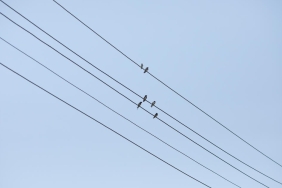IWAPI PROPOSES WIND AS A POWER SOURCE
TO anticipate the lack of power sources, the Indonesian Businesswomen's Association (Iwapi) proposed that wind power be used as a source of electricity in Indonesia.
""Of the many alternative energy sources, wind power generation should receive serious attention. Wind has renewable and environmentally friendly properties," said Iwapi Chairwoman Rina Fahmi Idris in Jakarta.
According to Rina, wind energy is considered ideal because it produces no pollution, zero fuel, and does not cause the greenhouse effect and does not produce harmful substances in the form of radioactive waste.
Each megawatt of electricity produced by windmills reduces emissions of 0.8 to 0.9 tons of greenhouse gases produced by oil and coal each year.
Rina considers the government's solution to be smart, fair and beneficial to the people by increasing electricity supply through the 10,000 megawatt power plant project.
To that end, she appealed to the development of new power plants, whatever the form should really be a common agenda.
""The government must guarantee the smooth realization of these projects, both regarding the financing process at the bank, price negotiations with PLN. Keep in mind, additional supply from private plants can help overcome the electricity supply shortage, "he explained.
Even so, regarding the increase in the basic electricity tariff (TDL), according to Rina, the public again has to take out the calculator and do mathematical calculations.
She urged PLN to conduct an up-to-date study so that customers who get TDL relief are those who really meet the criteria of underprivileged, poor households, households of retired low-grade employees, or other vulnerable families. This is because the reality is that the socio-economic conditions of the community are currently far from stable.
The community and the government, he said, also hope that SMEs will not raise production prices even though it is impossible. In fact, the possibility of layoffs is great for small industries that are unable to manage additional operational costs due to TDL increases.
""Who would want to lose money, let alone experience business bankruptcy. Not to mention that SMEs are also struggling with competitiveness issues since the start of the ASEAN-China Ffee Trade Agreement era,"" he said. DIT





